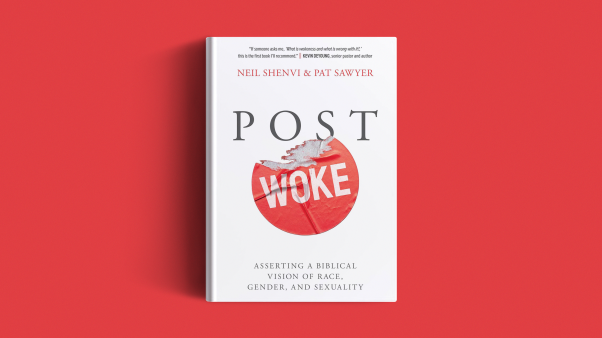A man came to see me. It was the beginning of Lent, the original “40 Days of Purposeful Repentance.”
“Pastor,” he said, “I want to confess my sins.” And in tears, he spoke honestly and openly about the sin in his life—nothing illegal, most known only to him, yet serious, and he wanted to turn away from it. We talked and prayed together, and he left.
Forty days later, he came back.
“How are you doing?” I asked.
“I haven’t made much progress,” he admitted, his eyes unable to meet mine.
In his agony was a question I’ve often asked: “Why does sin so stubbornly remain in our lives?” He and I both want to change more than we have and more than we do.
I’ve heard many answers, ranging from “You just haven’t gotten serious enough about turning away from your sin” to “You need an experience of greater or entire sanctification” to “You need an accountability partner” to “You need to let go and let God.” All helpful, to a point, but they didn’t seem to fit this man hunched over in front of me.
So I read several classic books of spiritual devotion. Their answer was not what I expected; in fact, it was the opposite.
In the first book, Francois Fenelon, a Christian spiritual adviser in the 1600s, wrote a letter that included a phrase that stopped me: “Sometimes [God] leaves people with certain unconquerable imperfections …” Really? God does this? What good end could God possibly have in mind for leaving unconquered areas in our lives? Fenelon continued, “… in order to deprive them of all inward self-satisfaction … Self-reliance, even in the matter of curing one’s faults, fosters a hidden conceit.”
In other words, we are most concerned about our “unconquerable imperfections.” God is more concerned about our pride. And in order to stab our pride, he may leave those imperfections in our life, for a time, to make us humble, to cause us to throw ourselves, in frustration with ourselves, upon God.
Even faults that stubbornly remain can be used by God for our good, says Fenelon: “Let us profit by the faults we have committed, through the humble consciousness of our weakness, without discouragement.”
I swelled with hope. Could it be that our frustratingly persistent sins, which abound, lead us to a greater awareness of God’s grace, which so much more abounds?
In a second spiritual classic, Introduction to the Devout Life, Francis de Sales concurs: “For the furtherance of humility, it is needful that we sometimes find ourselves worsted in this spiritual battle.” Needful. Necessary for us. But “we shall never be conquered until we lose either life or courage. … we are certain to vanquish so long as we are willing to fight.”
Our persistent failings bring us “abjection” (humility), and that’s spiritually beneficial as long as we persevere.
While striving for holiness, we must not underestimate the value of humility. As Peter of Damaskos wrote in the Philokalia: If “you sin out of habit even when you do not want to, show humility like the Publican (Lk. 18:13); this is enough to ensure your salvation.”
So when struggling with persistent sin, take heart. God is at work, and even your persistent failings may work to your good and his glory. Let yourself be humbled by your falls.
Fenelon concludes: “Bear with yourself in your involuntary frailties as God bears, wait patiently for His appointed time of complete deliverance, and meanwhile go on quietly and according to your strength in the path before you, without losing time in looking back; sorrowing over [your sins] with humility, but putting them aside to press onwards; not looking upon God as a spy watching to surprise you, or an enemy laying snares for you, but as a Father who loves you. … Such you will find to be the path toward true liberty.”
Kevin A. Miller is executive vice president of Christianity Today International and assistant pastor at Church of the Resurrection in Glen Ellyn, Illinois.
Copyright © 2008 by the author or Christianity Today/Leadership Journal.Click here for reprint information on Leadership Journal.









